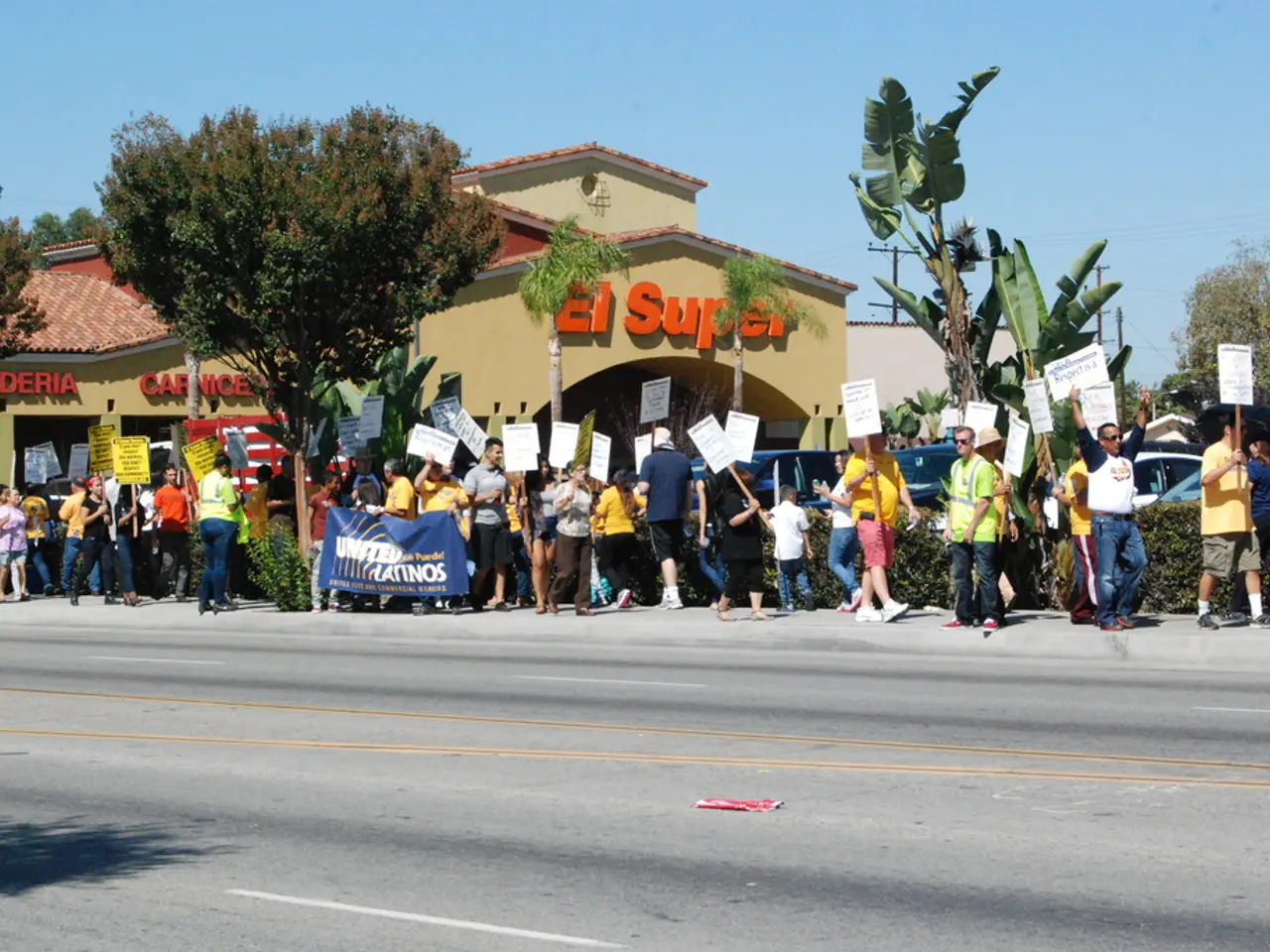Political shift in Argentina: Will Milei alter trajectory following resounding election loss?
In a significant turn of events, the Peronist coalition Fuerza Patria has emerged victorious in Argentina's legislative elections, marking a resounding defeat for President Javier Milei's ultraliberal right-wing party La Libertad Avanza.
The elections, held in Buenos Aires province before the national legislative elections scheduled for October 26, saw a strong showing for the center-left Peronist governor of Buenos Aires, Axel Kicillof. His triumph is believed to have played a significant role in the overall election results.
The election outcome has caused economic uncertainty, with the Argentine peso sharply depreciating and putting pressure on the central bank's empty foreign currency reserves. This negatively affects the purchasing power of Argentinians' wallets.
Political analyst Gustavo Marangoni emphasised that the central issue is the economy, and the Libra cryptocurrency scandal and audio recordings about bribes are secondary. He stated that the election result in Buenos Aires was a resounding response to the heart of Milei's government's economic program, which is austerity.
An audio recording published in a corruption case involving Karina Milei, the president's sister, may have accelerated the decision-making process for a large part of society. Vincent, a member of the Network of Political Scientists, mentioned this and the precedent of the Libra cryptocurrency case as decisive factors in the election results.
Other factors involved in the election results include absenteeism and the fragmentation of the non-Peronist vote.
Inflation has been reduced to 2% per month, but wage increases were capped at 1%. However, utilities and food prices continue to rise above wages in Argentina, causing hardship for many.
Vincent expressed concern that if Milei deepens his policies and becomes more aggressive, the defeat could be even worse in October. He also suggested that if Milei changes course in response to the election results, the electorate may give him a new vote of confidence.
Lechter considered the election results a wake-up call for the government, but warned against jumping to conclusions before the election in October. Marangoni warned that if the market movements continue and intensify, Milei's government runs a significant risk in the national legislative elections in October.
Milei chose to nationalize the provincial election, a move that was considered a mistake by some political analysts. Buenos Aires, the most populous district in Argentina, boasts 40% of the electorate and is a stronghold of Peronism.
The International Monetary Fund is demanding that the government modify its inflation measurement methodology with new weightings. The markets reacted negatively to the election results, with the dollar opening at 1450 Argentine pesos and the Merval index suffering a sharp drop.
The election results have also highlighted the government's perceived cruelty towards vulnerable populations, such as pensioners and the disabled, as a significant factor in the election results.
Lechter suggested that Milei could review his policies and make corrections and different proposals in response to the election results. Vincent also highlighted this as a potential avenue for Milei to regain the electorate's trust.
The political landscape in Argentina is poised for significant change in the coming months, with the October elections looming large on the horizon.
Read also:
- United States tariffs pose a threat to India, necessitating the recruitment of adept negotiators or strategists, similar to those who had influenced Trump's decisions.
- Weekly happenings in the German Federal Parliament (Bundestag)
- Southwest region's most popular posts, accompanied by an inquiry:
- Discussion between Putin and Trump in Alaska could potentially overshadow Ukraine's concerns








